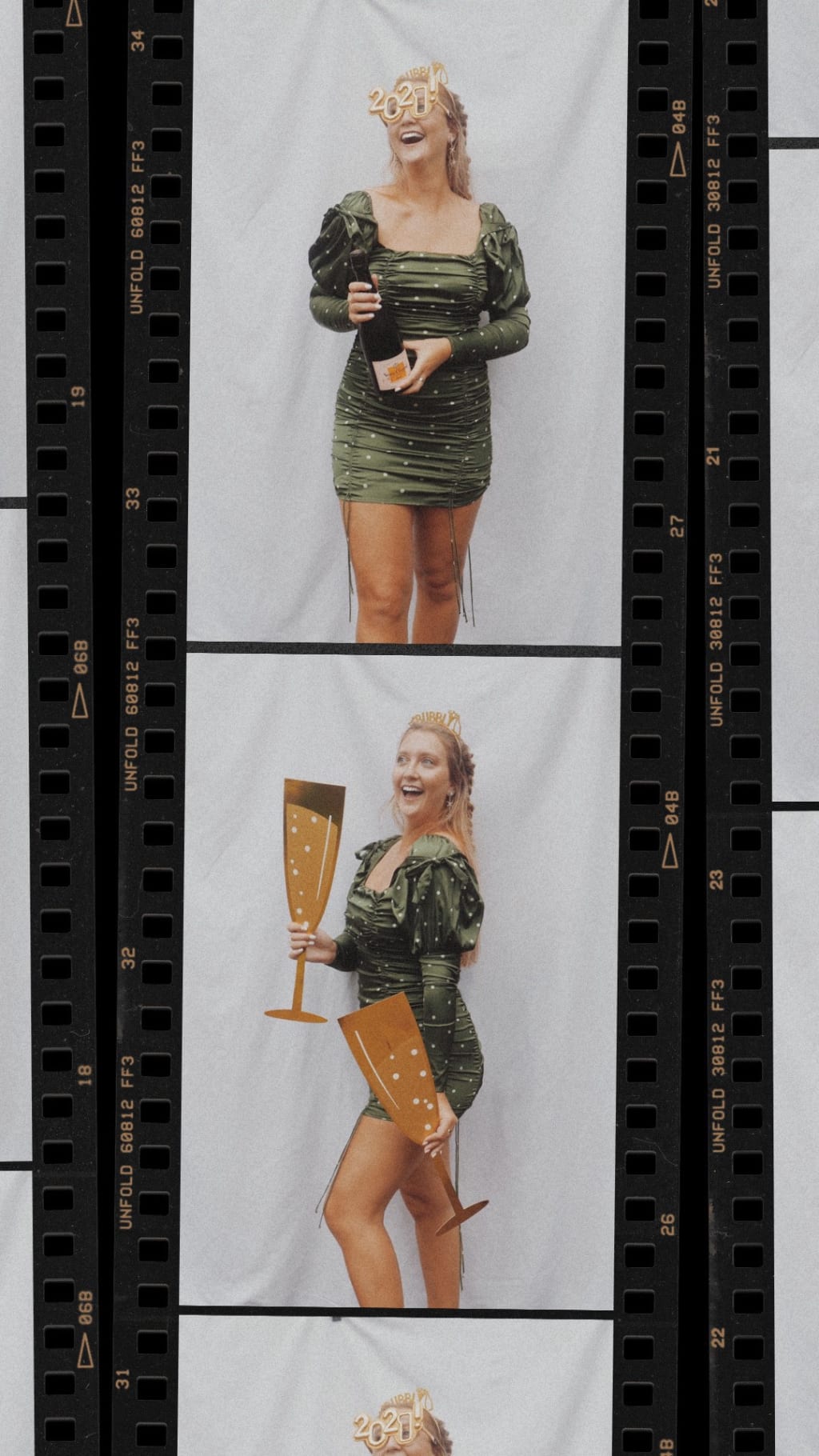Quitting Instagram and Facebook for 21 days
And I may never return.

Taking a hiatus from social media is no revolutionary idea at the start of the New Year.
A survey of 2,000 people by the Wexner Medical Center finds Americans are making adjustments to social media usage. More than half have changed their social media habits over time, and 1 in 5 make it a point of taking social media breaks.
On January 10th, I shared a photo to tell my 700+ followers, family, and friends that I would be taking a break from Instagram and Facebook.

The only form of social media I chose to continue to engage with was the glittering dumpster fire that is Twitter. I have very few followers, and the memes, celebrity drama, and cyberbullying of politicians does, in fact, spark joy.
There were many reasons why I felt the need to step away from Instagram and Facebook to protect my mental health. I have been going to therapy for the past three years, but finally, at a point in my life where I am ready to heal, focus on recovering from trauma, and learn how to manage my depression and anxiety. Using social media made me anxious, doubt myself, and lower my confidence, which I no longer wanted to welcome into my life.
I shared that I would be offline, logged out of my accounts, and deleted the apps off my phone.
It was an immediately satisfying feeling.
Choosing to step away from Facebook was a simple action. No one close to me uses it as a popular form of social media it once was, let alone regularly logs on. I use it to keep tabs on friends’ birthdays (which I have since synched with my calendar) and engage with Facebook Groups. My feed was nothing but advertisements, news, old memes, and updates from the groups I was an active member of. It wasn't worth altering the Facebook News Feed preferences of a dead medium.
I wanted to stay “off the grid” for 21 days as a New Year Resolution to focus on my mental health. It takes 21 days to break a habit, and my usage of Instagram was an addiction taking a toll on my self-worth and delicate mental health.
Why I stepped away from Instagram
The Social Pressure of Online Activism
Over the summer, the world watched and marched against police brutality, supporting the Black Lives Matter movement. While many took to the streets to protest offline, there was a large shift in how vast amounts of users began engaging with Instagram as a source of news and education.
It isn’t striking that many Americans don’t tune into a daily or nightly news program.
According to a published Pew Research Center report, 55% of U.S. adults now get their news from social media either “often” or “sometimes” — an 8% increase from last year. About three-in-ten (28%) said they get their news “often,” up from 20% in 2018.
After the summer, the number of decorative typefaces with a slideshow of facts on current US news, horrific global disasters, and in-your-face issues you need to care about was overpowering in stories throughout my feed.

The new trend wasn’t going away even though news on social media makes users more anxious, myself included.
The main issue with these quirky typeface mini education lessons is the exchange of social currency in the name of activism.
Social currency simply refers to the value that information has when shared between individuals, typically used by marketing to the word of mouth drive sales. On a psychological level, something has a good social currency if people want to continue to share it. People will share information that makes them look good and thus gain social currency.
2020 was a summer of activism online and off. Activists got to work, becoming graphic designers and Canva masters overnight. The masses shared those activists’ content to their stories, amid the new social pressure to engage with news on the platform.
Tapping through stories became seeing the same infographic over and over. Being an online activist goes beyond sharing a post. Sharing content that is popular because you see your friends are sharing, is playing into social currency.
The Unhealthy Comparisons
Instagram is often criticized for contributing to depleting the self-confidence of young girls through the unhealthy comparisons of looks to heavily edited photos. My own self-confidence was tested with every influencer, celebrity, and frienemy sharing “flawless” photos.
I will reluctantly admit I would use Facetune to alter my appearance. I often would brighten teeth and blonde hair after my already VSCO edited photo made them appear too warm. I would even shape-shift, editing my face or stomach when it was an “unflattering angle.”
The use of Facetune made me realize how Instagram had affected my self-confidence. I was altering my appearance just like the celebrities I loathed but felt it necessary to look perfect when uploading a photo.
Beyond the cosmetic comparisons, Instagram induces envy for lifestyles and achievements, thinking your own life doesn’t measure up. Our highly curated online selves typically never show the full picture of our offline life.
I started to be more open on social media about the struggles or challenges I was going through. Journalling had been becoming very healing, and I wanted to share more of my real self online, only to receive -55% likes than an edited swimsuit photo. Instagram was not the place for me to be “feeling my feelings” when I was still obsessively comparing likes.


It Is an Unhealthy Addiction
Looking at my phone usage, I was on my phone 4+ hours a day, spending most of my time on Instagram.
During that time, I was messaging with friends, responding to their stories, and scrolling through the stream of content from brands and influencers. I have tried my best to follow people and accounts that would positively affect my mental health. I unfollowed influencers that made me feel bad about my body, people from college or high school I no longer knew or cared to see their weekly selfies. I wanted to see more artists I love, activists I want to learn from, and photographers that add to my list of “Places I Want To Travel To When The Pandemic Is Over.” No matter how I try to change my feed, Instagram will still never give me what I genuinely want to see, my friends and family.
Even after the “You’re All Caught Up” message appears, I click refresh, and there is always more to see. More time to waste. More comparisons to internalize.
21 Day Reflection
After 21 days, I can honestly say taking a break has helped my mental health. My screen time has drastically gone down. I am spending close to 2 hours on my phone a day compared to the 5 hours before my social media break. Taking a break from Instagram has allowed me to focus, be more creative, and engage in authentic communication. And to be honest, I don’t know if and when I will return.
I starting seeing a new therapist at the start of the new year that inspired me to quit social media. I have been building back my self-confidence and realizing I don’t need to share my life to feel valued. I embarrassingly had to tell my 24-year old self to stop tieing my self-worth to likes.
I craved digital connection due to the lack of in-person contact in our COVID changed world. I wanted to be vulnerable online to be more authentic to myself. Still, social media isn’t a place to be sharing the depths of your challenges when you typically post whity captions with aesthetically pleasing images. If you brave in your online vulnerability, then I’m in awe of you, but I feel okay with accepting that I am not.
I would instead engage with social media in the future as sharing the “big moments” with friends and family rather than a place to work out my emotions. I am handling them elsewhere.
I don’t need Instagram to feel connected, and I have other forms of getting in touch with friends and family. I thought the fear of missing out would make me itching to return to Instagram, but in reality, I have connected more authentically to friends in the past 21 days than I have in years. Utilizing Facetime for virtual friend dates and check-ins, and having lengthy text conversations is more meaningful than any other digital social interaction.
I also don’t need social media to tell me what social issues to care about. I can pay attention to real news sources to know what is happening globally without the social pressure and commentary on what new tragedy is happening in the Middle East. I choose when and what I engage with. I don’t need to participate in the online exchange of social currency to prove my moral values as a citizen in this world.
The bottom line I learned is that my value and values are not defined by what I share on social media.
About the Creator
Katie Manning
Katie is a creative slashie currently residing in Boston with her distinctly adorable pup, Penny.
💬 Keep in touch via:
Email: [email protected]
Website: katiemanning.net
Instagram: @_.katie.manning_.








Comments
There are no comments for this story
Be the first to respond and start the conversation.